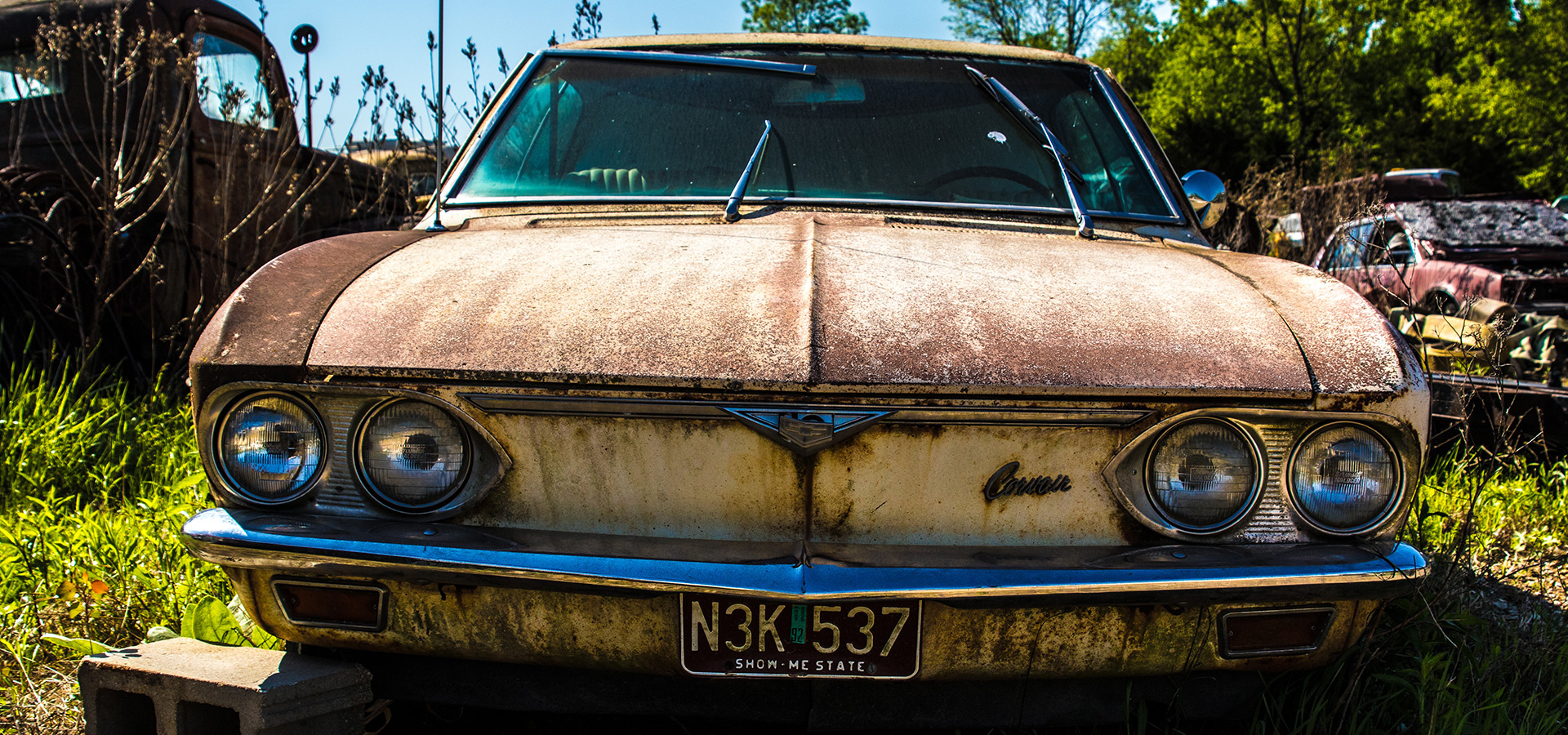
Junkyard Wisdom
It’s no secret that we love a healthy dose of uncommon sense. Our friend Roy Goble’s new book, Junkyard Wisdom, advocates an uncommon sense approach to wealth and philanthropy. Roy’s book is written from a Christian perspective, but his message can be applied to everyone, regardless of our religious background or beliefs.

It’s not about the money
Roy’s perspective is refreshing and realistic; he has managed to find the middle ground between two extreme and opposing views regarding money. One advocates for idolizing money and viewing it as an end in itself rather than a means to bigger dreams. This perspective says that success is determined by your bank statement alone. The other extreme demonizes money saying that it’s the root of all evil, something to be ashamed of and avoided at all costs.
Roy says neither of these poles is healthy. Taking a much more neutral and uncommon position, he says that money, like a person, has the potential for both good and evil.
“Money is a tool. It is also a temptation. It’s many things, in fact, but evil isn’t one of them… Does the potential for evil hide within money? Yes—but so does the potential for great good. That same potential for goodness hides inside many human creations, like art and education. The fact that art can become propaganda, or that education can become indoctrination, doesn’t deter most [people] from valuing art and education.”
Wrestling with wealth
As a wealthy real estate investor in Silicon Valley and a co-founder of a Christian non-profit, Roy is frequently in the presence of people from both views. He often finds himself caught in the middle and embraces the position because he believes that he is supposed to wrestle with his wealth. This is much more challenging place than either using it all for self-indulgent pleasures or giving it all away to charity. Wrestling with wealth requires the need for continuous informed decisions about where his money will have the most effective impact.
Use the tools you have been given
Roy sees his wealth as a tool to be used to affect change around the world. To young adults who want to drop out of college or leave their high paying jobs to do full time charity work, he challenges them to consider that they may already be in a much better position to create big change.
There is no one right way to do good in the world. If we find ourselves in a position of privilege, our responsibility is not to refuse the opportunities we have been given in pursuit of seemingly more noble work. Instead, we should use our individual talents to create unique contributions, because the reality is that money is almost always a big piece of helping people or creating change. So if you have money to spare, you have the ability to fulfill a need somewhere.
The amnesia of wealth
Roy also reminds his readers that “wealth is a master illusionist.” It allows us to put up walls, to go on a volunteer trip or mission, learn something or fund something, and then move on. This is the amnesia of wealth. It allows us to escape and put on blinders. To remain conscious of the pain that exists beyond the comfort of our bubbles requires a concerted effort.
Treat others the way they want to be treated
Roy further reminds readers that no matter whom or where we are trying to offer help, we have to work to see people as individuals within the context of their lives, and we have to ask them how we can best help with their unique situations. We cannot ever assume that we know the best way to help someone because everyone is the expert on their own life, but never the lives of others. So ask the experts what they need?
Pay attention to complacency, not money
Ultimately, talking too much about money as either positive or negative is not constructive. What really matters is the person and the attitude behind the capital. Complacency, not wealth, is the real danger. “Complacency is a terrible model for human life. Complacent companies stagnate or fail. Complacent animals lose territory. Complacent students learn a few things by rote, only to soon forget them.” So no matter who you are or what your financial status is, remember that critical thinking and conscious actions are the key to creating change.
We want to share Roy’s three uncommon sense tips to “help stay healthy and balanced in the ongoing wrestling match of life.” These tips apply not only to philanthropy, but business and relationships alike.
- Viciously attack ego: The more I value my own intellect, skills, experience, and so on, the more likely I am to cut everyone else out of the loop.
- Shut up and listen: The primary way to deflate your own pride is to get outside of your own head. But even listening more is a tricky one, mostly because it can seem like you’re listening when you really are not.
- Value community: We all have unique skills, talents, and experience, as well as deficits. We are stronger when we work together to solve problems.
For more junkyard wisdom, check out the book here.


Uncommon Person: Chad Hutson

Our Internal Learning & Impact at Bulldog Drummond

The One Decision by Employers in 2021 that Means Everything

What I Wish I Knew

Standing Up Inside

Uncommon Person: Gregg Imamoto

Five Things Every Company Should Know about ESG

Redefining Value

Uncommon Person: Chris Baréz-Brown

It’s Time For A Whole Lotta Common Good

Did You Choose Humanity?

Uncommon Partnership: Violux

Here’s How

Uncommon Person: Santhosh Nair

Designing Strategy For A Complex World

Responsibility & Relevance for Brands

